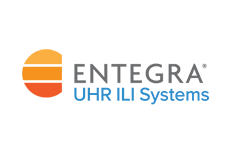White papers
Download technical white papers from the pipeline industry.
Paradigm busted – Pinhole detection utilising UHR Axial MFL and Caliper ILI, By: Mark Olson
With the advent of ultra-high resolution (UHR) MFL/caliper combination tools, the detection, characterisation, and sizing of true pinhole anomalies is a new frontier for axial magnetic flux leakage (MFL) inline inspection (ILI). This paper will discuss seven years of experience with UHR MFL inline inspection, challenging conventional wisdom on MFL technology.
Published on the 02 March 2022
Digging in the sand: Mitigating sand damage to HDD tooling
In this paper, you will learn how sand can negatively impact your equipment, how and when to test for sand, and how to mitigate it on your job site.
Published on the 01 December 2021
Seven steps to help you manage EHSQ incidents that could derail your business
Incident reporting does not have to be a pain point for you, which is why it is critical to adopt an incident management system that identifies root causes and near misses. Download Intelex’s white paper to find out more!
Published on the 01 November 2021
The trencher advantage
Many contractors use excavators to handle the bulk of trenching when laying pipe because the excavator is already in their fleet. However, excavators are not always the optimal machine for the job. Read this white paper to find out more.
Published on the 01 November 2021
Recover and thrive - limited demand does not mean limited opportunities for the oil and gas sector
Calling all innovation-focused EHSQ leaders in oil and gas! If you’re open to incorporating key insights into your transformative action plans, then we have got just the resource to help you achieve your goals.
Published on the 30 June 2021
Reclaimer operational and maintenance tips from the pros
The rising costs associated with fluid management and volume of drilling fluid required on horizontal directional drilling (HDD) projects has led to the widespread use of reclaimers and mud recycling systems on many jobsites. This paper offers up some operating and routine maintenance tips.
Published on the 01 June 2021
A Connected Work Checklist for EHSQ Managers and Practitioners in the Oil and Gas Industry
Intelex is excited to share with you the Connected Work Checklist for EHSQ Leaders and Practitioners in the Oil and Gas Industry.
Published on the 15 April 2021
The Advantages of High-Accuracy Corrosion Growth Assessment
This white paper from NDT Global discusses the importance of monitoring corrosion in pipelines, and how regular ultrasonic inline inspections can assist operators in safely managing the integrity of their pipeline.
Published on the 07 May 2019




